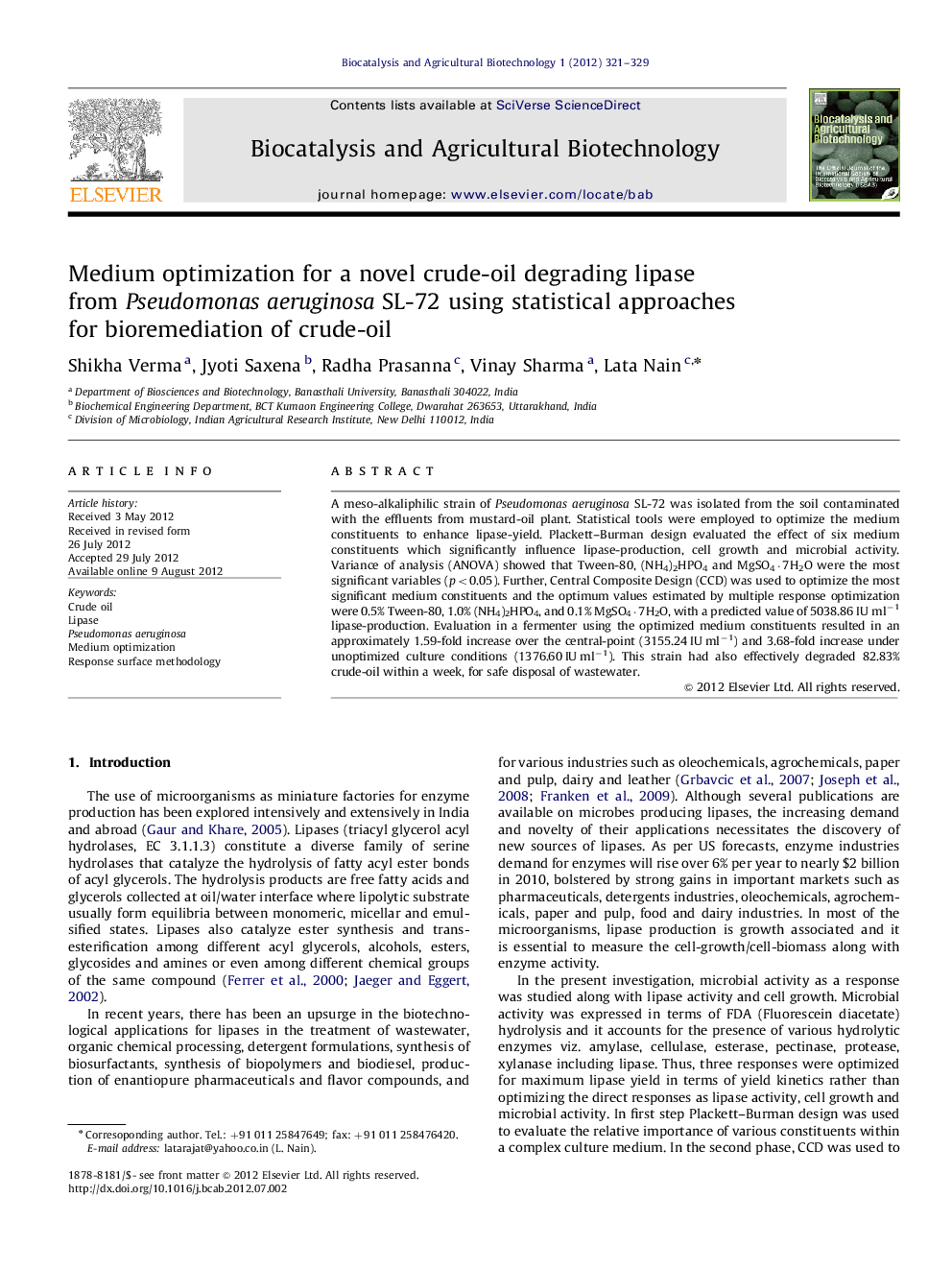| Article ID | Journal | Published Year | Pages | File Type |
|---|---|---|---|---|
| 2075698 | Biocatalysis and Agricultural Biotechnology | 2012 | 9 Pages |
A meso-alkaliphilic strain of Pseudomonas aeruginosa SL-72 was isolated from the soil contaminated with the effluents from mustard-oil plant. Statistical tools were employed to optimize the medium constituents to enhance lipase-yield. Plackett–Burman design evaluated the effect of six medium constituents which significantly influence lipase-production, cell growth and microbial activity. Variance of analysis (ANOVA) showed that Tween-80, (NH4)2HPO4 and MgSO4·7H2O were the most significant variables (p<0.05). Further, Central Composite Design (CCD) was used to optimize the most significant medium constituents and the optimum values estimated by multiple response optimization were 0.5% Tween-80, 1.0% (NH4)2HPO4, and 0.1% MgSO4·7H2O, with a predicted value of 5038.86 IU ml−1 lipase-production. Evaluation in a fermenter using the optimized medium constituents resulted in an approximately 1.59-fold increase over the central-point (3155.24 IU ml−1) and 3.68-fold increase under unoptimized culture conditions (1376.60 IU ml−1). This strain had also effectively degraded 82.83% crude-oil within a week, for safe disposal of wastewater.
